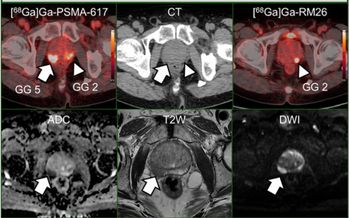
Conversation resumes after 19 years
After 19 years in a minimally conscious state, a man recovered language and motor function.
After 19 years in a minimally conscious state, a man recovered language and motor function. Diffusion tensor imaging showed reorganization of the patient's white matter, possibly facilitating functional recovery.
At the initial DTI evaluation by Henning U. Voss, Ph.D., a biomedical researcher at Cornell University, and colleagues, the patient already had regained limited movement, speech, and communication. DTI showed increased anisotropy (less water diffusion in white matter tracts, indicating recovery) in the medial parieto-occipital (MPO) areas compared with controls (J Clin Invest 2006;116:2005-2011).
Eighteen months later, at the time of a second scan, the patient's motor and cognitive functions had further improved. Interestingly, anisotropy in the MPO had decreased. Researchers theorize that the initial increase in anisotropy was a transitional stage of an ongoing axonal sprouting process. Once the new fiber tracts were laid down, anisotropy decreased as axons sprouted toward other targets.
Newsletter
Stay at the forefront of radiology with the Diagnostic Imaging newsletter, delivering the latest news, clinical insights, and imaging advancements for today’s radiologists.













